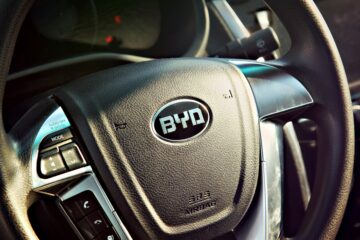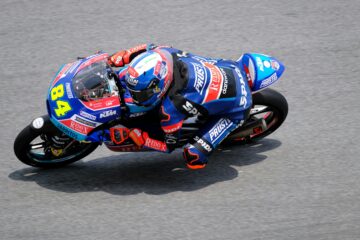Fiat Chrysler Automobiles NV (NYSE: FCAU) – market cap as of 31/10/2018: USD 23.978bn
KKR & Co. Inc. (NYSE: KKR) – market cap as of: 31/10/2018: USD 19.176bn
Introduction
On October 22, 2018 Fiat Chrysler Automobiles N.V. announced the sale of its automotive components unit Magneti Marelli for a price of €6.2bn to leading Japanese car parts maker Calsonic Kansei, owned by private-equity firm KKR. The combined business will operate under the name Magneti Marelli CK Holdings and will form the 7th largest independent automobile component manufacturer based on revenues. Earlier this year, the long-time CEO of FCA, Sergio Marchionne announced a plan to list or sell Magneti Marelli. While the company was preparing a spin-off of the unit, they were also approached by several bidders for alternative transactions. In July FCA’s plan was complicated by Mr. Marchionne’s departure from the company due to his illness and sudden passing away. For Mike Manley, the successor, the sale of the business unit marks an important strategic decision and the first major transaction as new CEO.
About Calsonic Kansei
Calsonic Kansei, headquartered in Saitama, Japan, was founded in 1938 and has recently celebrated its 80th anniversary. Today, the company is a global manufacturer of automobile components, specializing in interiors, electronics, air conditioning units and compressors, operating in 15 countries worldwide and supplying 18 automotive manufacturers.
In 2016, after Nissan, the then company’s largest shareholder (approximate 41% holding), opened an auction to sell its stake, KKR acquired Calsonic for a price of up to $4.5bn. This takeover represents the biggest transaction for KKR in Japan.
For the latest fiscal year, the revenues of Calsonic Kansei amounted to €7.7bn and the company employed around 22,700 people worldwide.
About Magneti Marelli
Founded in 1919 and headquartered in Corbetta, Italy, Magneti Marelli is a leading global automotive components supplier. It specializes in lighting, powertrains, and high-tech electronics. Since 1967 the company has been a subsidiary of Fiat Chrysler Automobiles (FCA) and of its predecessor companies.
In 2017, total revenues for Magneti Marelli amounted to €8.2bn and the number of employees was around 43,000.
Industry Overview
The automotive industry, having been through major turbulences since the financial crisis, is evolving in the face of tighter regulations on environmental factors, fuel efficiency and safety compliances, all the while coping with recent trade tensions and tariffs. China, the biggest automotive market by vehicles sold, 29m in 2017, is facing an economic slowdown that has sparked higher competition, and the United States, the second largest market, has enforced some of the toughest regulation manufacturers are required to meet regarding fuel consumption, safety and environmental impact. Within this adverse macroeconomic framework, pressure for innovation has ramped up as manufacturers and suppliers alike are adapting to the introduction of new computer designs and manufacturing processes. Since 2007, consolidation has been a recurring theme among automotive suppliers. This is especially true for original equipment manufacturers (OEMs), who are increasingly relying on the acquisition of companies ahead in the technological curve to keep pace with the technological advancements. Indeed, M&A in the global automotive supplier sector, including OEMs, reached unprecedented highs in 2015 with a shift towards fewer deals with higher individual value.
In recent news, Delphi, an automotive parts company, spun off its Delphi Technologies division into Aptiv Plc, an electronics and advanced safety company, to tackle increasing regulatory demands. Samsung moved into the market through the acquisition of Harman International Industries, a company which designs and engineers connected products and solutions for automakers. Intel also entered the market through its acquisition of Mobileye, a company focused on vision-based driver assistance. Overall, M&A activity in the automotive industry rose by 30% compared to the previous year, to a value of $53.2bn in 2017. According to a study published by Lazard and Roland Berger, the global supplier industry is set to grow in 2018, albeit at a slower pace. Long-term growth, on the other hand is expected to stagnate if not diminish. This vanishing growth has already led to many supplier rethinking their business models. Ultimately, suppliers are expected to consolidate in order to maintain growth.
Technology has been playing a major role in the automotive supplier sector to the point that vehicles today are entirely different from their counterparts ten years ago. Research and development also plays a vital role where companies are shifting towards light-weighting solutions to counter tougher regulations by using new materials such as aluminium. The mass production of novel hybrid and electric systems and self-driving vehicles will no doubt bring plenty of innovation in the coming years. Indeed, analysts predict that in the next 20 years, 40% of all new vehicles sold globally will be electric, with self-driving cars set to enter the market by 2030.
Deal Structure
Calsonic Kansei Corporation, a subsidy of KKR & Co. Inc., has agreed to acquire Magneti Marelli, a subsidy of FCA Italy specializing in the production of lighting, powertrains and electronics, for an enterprise value of $7.1bn, including debt, whose amount is undisclosed. The consideration will be all-cash. Calsonic Kansei is said to considering listing on an undisclosed stock market, once it has taken full control of Magneti Marelli. Financing is underway as Calsonic Kansei has secured $5.9bn from a collection of Japanese banks.
Deal rationale
From FCA’s perspective the deal is backed from a strong rationale, especially from a financial point of view.
Back under Marchionne’s leadership, FCA was ready to list the company on the Milan stock exchange but was also open to sell the company in case of a big offer due to the deteriorating Italian market conditions. In the end the second option prevailed: FCA managed to get the asked price, which was €1 billion more than the initial offer of around €5 billion, valuing the equity at 17x one year forward earnings, more than twice the current P/E of its competitors, and at 11x forward EBIT, compared with an average of 7.6x one year forward EBIT of the industry. The premium being paid in the transaction will help FCA pay dividends in June, as planned, as well as pay for much needed investments in hybrid and electric cars.
In addition, the offer put forward by Calsonic was preferred to other pure private equity bids because combining with a strategic partner reduces the chances of the acquired company being broken up. Furthermore, through a supply agreement FCA managed to strengthen the relationship with Magneti Marelli, so as to avoid losing an important partner.
From KKR-Calsonic’s perspective the deal, although backed a strong rationale, provides reasons to be cautious.
On the one hand, Magneti Marelli has a relatively disruption-tolerant portfolio of car lighting and electronics which is complementary to Calsonic’s expertise in the driver’s console design. In addition, Magneti Marelli will help Calsonic diversify its order book, which is currently too reliant on Nissan, its previous owner, thereby reducing operational risk.
On the other hand, however, the premium paid is high, especially considering a weakening macroeconomic environment, overcapacity and turmoil from the transition to electric vehicles. Therefore, Calsonic is betting on the benefits of consolidation outweighing the potential bumpiness in the short term.
Market reaction
Markets have reacted positively to the acquisition: FCA’s shares rose as much as 7.2% after a delayed opening and stabilized at a gain of 5% as investors welcomed the sale at a price higher than the average analyst valuation of the business. The sale will boost FCA’s net cash position and therefore it raised expectations of a share buyback and reassured the investors about getting the dividend payments the carmaker has promised under its new five-year strategy plan unveiled in June.
Advisors
Goldman Sachs and J.P. Morgan acted as financial advisors to FCA; Legance, Maisto and Sullivan & Cromwell acted as FCA’s legal counsels. UBS and Morgan Stanley acted as financial advisors to KKR-Calsonic, while Dentons, Deloitte and Simpson Thacher & Bartlett were their legal counsels.



0 Comments